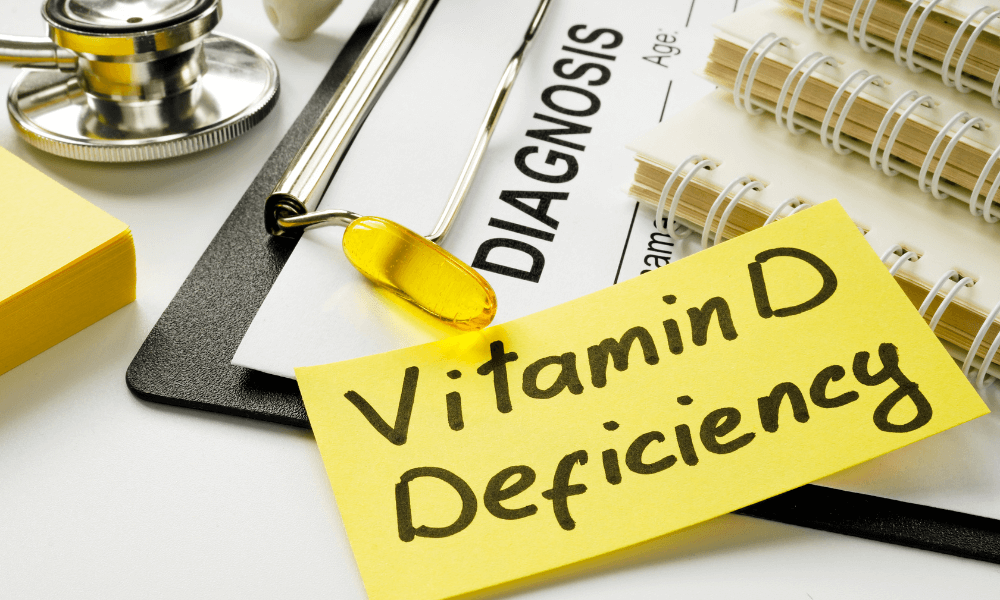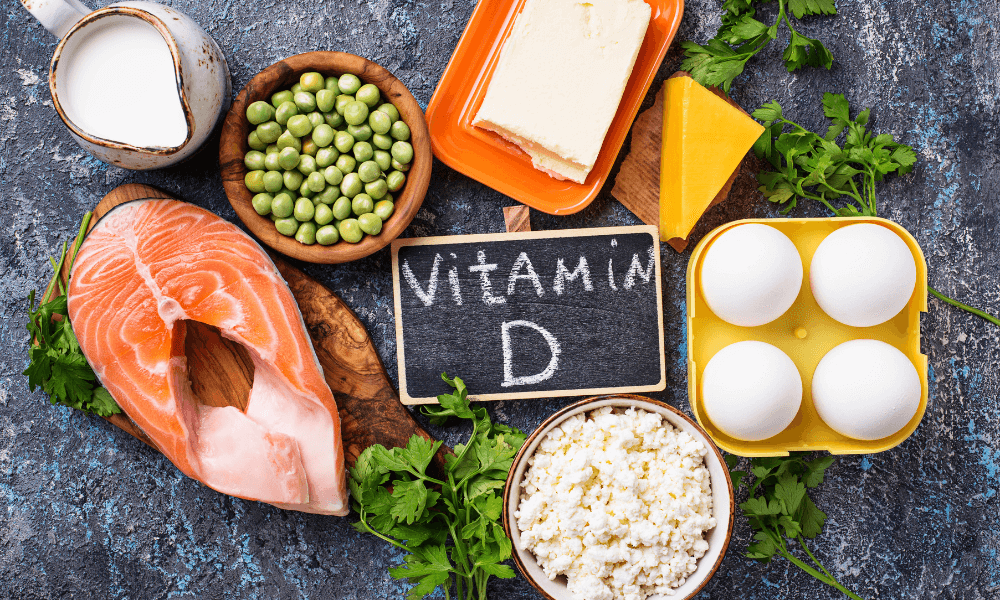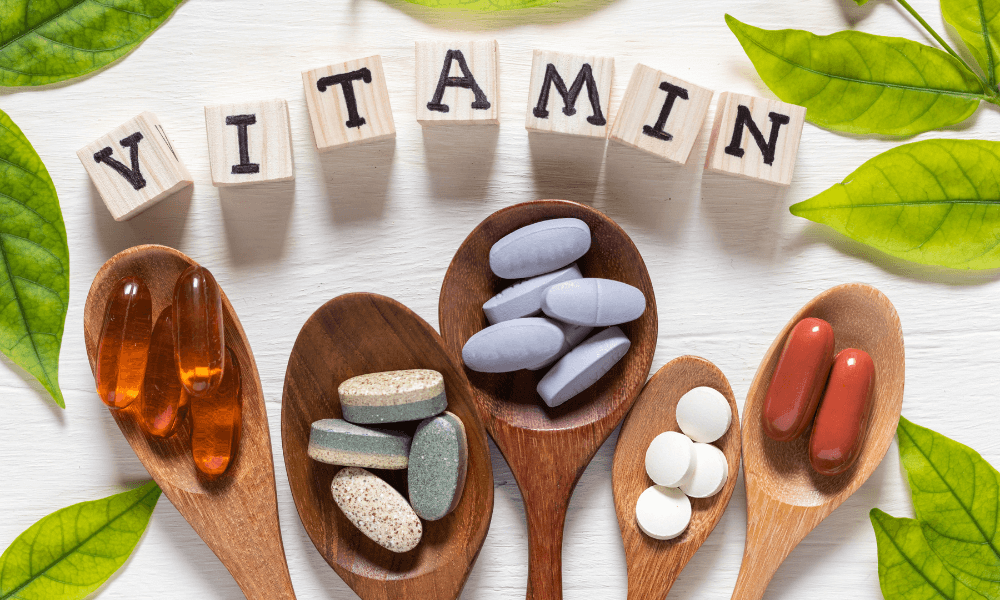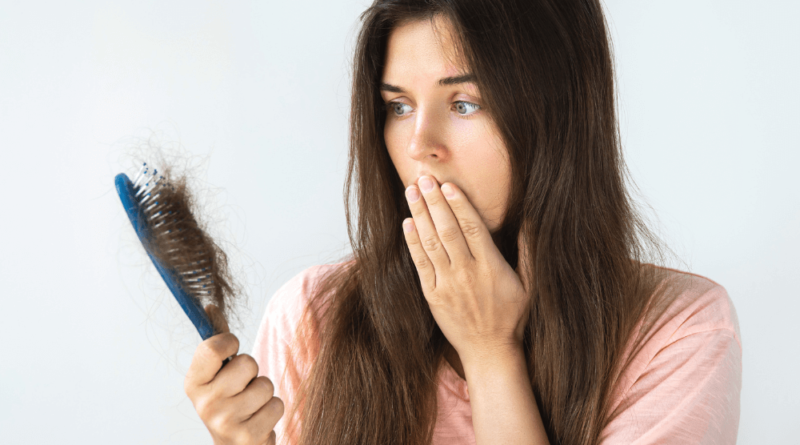Which Vitamin Deficiency Causes Hair Loss?
Which Vitamin Deficiency Causes Hair Loss? What You Need to Know
Introduction:
Hair loss can be a distressing condition affecting people of all ages and backgrounds, leading to decreased confidence. While various factors contribute to hair loss, vitamin deficiency is one significant aspect often overlooked. In this comprehensive guide, we will delve into the relationship between hair loss and essential vitamins, mainly focusing on the impact of vitamin deficiencies. We’ll explore how vitamin D and vitamin B12 deficiencies can lead to hair loss and provide insights into other related aspects of this topic.
The Role of Vitamin D in Hair Health

Vitamin D, also known as the “sunshine vitamin,” is essential for healthy hair. It is synthesized in the skin when exposed to sunlight, but it can also be obtained through dietary sources and supplements. Vitamin D is essential for the hair growth cycle, and a deficiency can lead to hair loss.
How Vitamin D Deficiency Affects Hair Loss

Research has shown a strong connection between vitamin D deficiency and hair loss. When your body doesn’t have enough vitamin D, it can cause conditions like alopecia areata, which leads to hair falling out in small, circular patches. Moreover, a deficiency in vitamin D may contribute to the progression of androgenetic alopecia, also known as male or female pattern baldness.
Symptoms of vitamin D deficiency:
- Fatigue
- Bone pain
- Muscle weakness
- Increased susceptibility to infection
- Hair loss
Foods high in vitamin D:
- Fatty fish
- Liver
- Egg yolks
- Fortified foods
- Sunlight
Can Vitamin B12 Cause Hair Loss?
Vitamin B12 is crucial for healthy hair growth. Its deficiency can cause anemia and hair loss. B12 plays a crucial role in producing red blood cells that carry oxygen to the hair follicles. Hair follicles cannot function properly without enough oxygen, and hair loss can occur. Symptoms of B12 deficiency include fatigue, weakness, pale skin, and difficulty concentrating.
The Impact of Vitamin B12 Deficiency on Hair

Vitamin B12 is necessary to produce red blood cells, which transport oxygen and nutrients to hair follicles. When there is a shortage of B12 in the body, these follicles can become weak and prone to hair loss. In some cases, severe B12 deficiency may even cause premature graying of hair.
Symptoms of vitamin B12 deficiency:
- Fatigue
- Weakness
- Pale skin
- Dizziness
- Headache
- Numbness or tingling in the hands and feet
- Difficulty concentrating
- Hair loss
Foods high in vitamin B12:
- Meat
- Poultry
- Fish
- Eggs
- Dairy products
- Fortified foods
How to Address Vitamin B12 Deficiency
If you suspect that vitamin B12 deficiency contributes to hair loss, consult a healthcare professional. They can guide dietary changes, vitamin supplements, or injections to address the deficiency. Some of the foods that are high in vitamin B12 include meat, fish, dairy products, and cereals that are fortified with this vitamin.
Vitamin deficiencies and hair loss
Deficiencies in any of the listed vitamins can contribute to hair loss. However, hair loss is a complex condition with multiple causes. Hair loss is often due to a combination of factors, including genetics, hormones, and stress.
If you’re experiencing hair loss, seeing a doctor to rule out any underlying medical conditions is important. If a deficiency is suspected, your doctor can order blood tests to measure your vitamin levels.
Also read: How to fix stunted hair growth?
Other Vitamins for Healthy Hair

While vitamin D and B12 deficiencies are prominent culprits in hair loss, other vitamins and minerals also play a crucial role in maintaining healthy hair. Here are a few other essential nutrients that you should be aware of:
Vitamin A
Vitamin A helps produce sebum, an oily substance that moisturizes the scalp. A lack of Vitamin A in the body can cause the scalp to dry and itchy, leading to hair loss.
Vitamin E
Vitamin E, an antioxidant, protects hair follicles from free radical damage. It helps to stimulate hair growth and maintain a healthy scalp.
Iron
Iron deficiency causes anemia, which reduces red blood cells, leading to hair loss as a possible consequence. Ensuring an adequate intake of iron-rich foods like red meat, lentils, and spinach is crucial.
Zinc
Zinc is essential for hair growth, repair, and the immune system. Deficiency can cause hair thinning and scalp infections.
Also read: Does Creatine Cause Hair Loss?
Conclusion
To understand the causes of hair loss, it’s vital to consider the role of vitamin deficiencies. Vitamin D and B12 have a significant impact on hair health. Addressing these deficiencies through proper nutrition, supplements, and professional guidance can help promote healthy hair growth and prevent hair loss.
It’s important to remember that while vitamin deficiencies are potential contributors to hair loss, they are just one piece of the puzzle. Genetics, hormonal imbalances, underlying medical conditions, and lifestyle factors can also influence hair loss. If you’re experiencing significant hair loss, consulting a healthcare provider is crucial to determine the underlying cause and develop an appropriate treatment plan.
Maintaining a balanced diet rich in essential vitamins and minerals, alongside a healthy lifestyle, is the foundation for solid and vibrant hair. So, if you’ve been wondering “which vitamin deficiency causes hair loss,” remember that a well-rounded approach to nutrition and overall health is vital to keeping your locks in top shape.
(FAQs) related to vitamin deficiency and hair loss:
Can a Vitamin D Deficiency Cause Permanent Hair Loss?
No, a vitamin D deficiency typically does not cause permanent hair loss. Hair loss associated with vitamin D deficiency is often reversible with adequate supplementation and improved nutrition. However, if the deficiency is severe and goes untreated for an extended period, it may contribute to long-term hair problems.
How Can I Determine If I Have a Vitamin B12 Deficiency?
A blood test is the most accurate way to diagnose a vitamin B12 deficiency. If you are experiencing symptoms related to B12 deficiency, consult a healthcare professional for testing and guidance on supplementation or dietary changes to address hair loss or other symptoms.
Are There Any Natural Remedies to Combat Vitamin Deficiency-Related Hair Loss?
While it’s crucial to address vitamin deficiencies through diet and supplements, there are no specific “natural remedies” to reverse hair loss directly caused by these deficiencies. A balanced diet rich in necessary vitamins and minerals promotes natural hair health.
How Long Does It Take to See Improvement in Hair Growth After Treating Vitamin Deficiencies?
The time it takes to see improvement in hair growth after treating vitamin deficiencies varies from person to person. It may take several months to notice changes, as hair growth is slow. Patience and consistency in addressing the deficiencies are key.
Can I Take Over-the-Counter Supplements to Address Vitamin Deficiencies and Prevent Hair Loss?
Consult a healthcare provider before taking supplements. Excessive intake of specific vitamins or minerals can harm you. They can suggest the correct dose and monitor your progress.
